- Details
- Category: Senator Willie Preston News
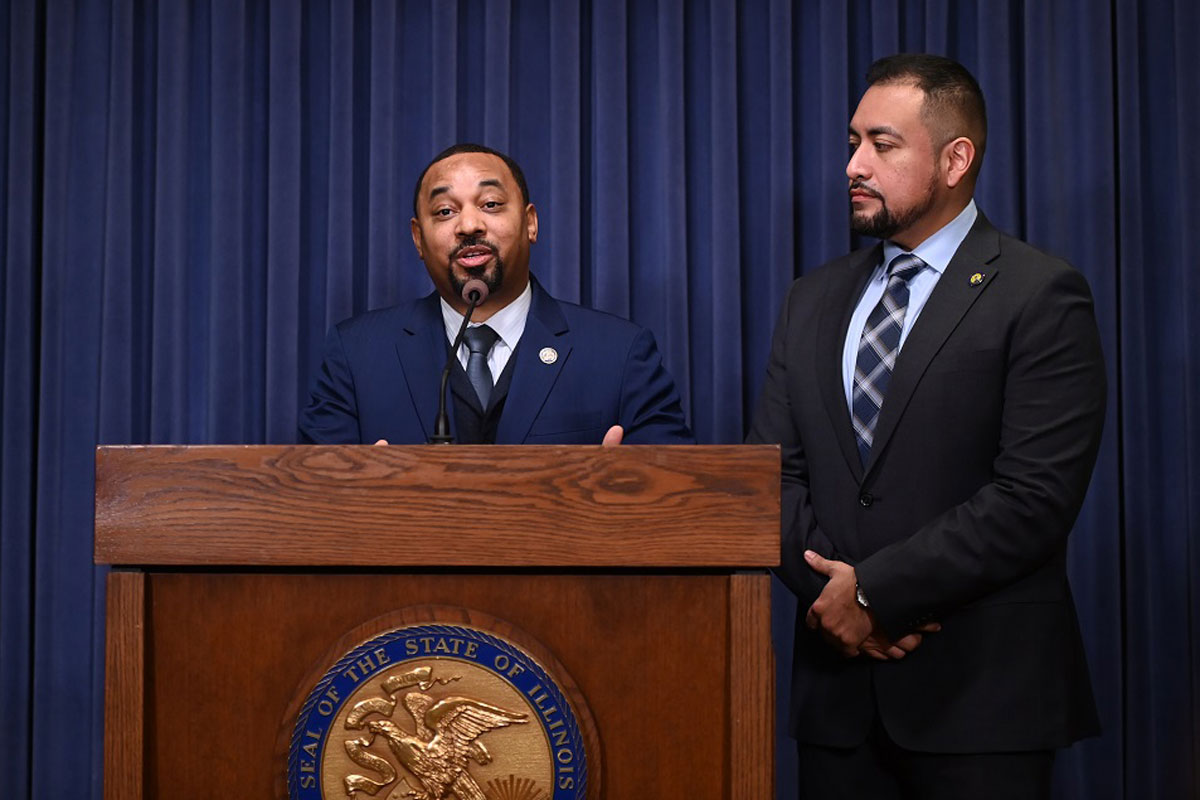 SPRINGFIELD – State Senator Willie Preston held a press conference Tuesday to outline his Property Justice and Community Recovery Act – long-term structural reform to stop wealth extraction from disinvested communities, which will in turn stabilize neighborhoods.
SPRINGFIELD – State Senator Willie Preston held a press conference Tuesday to outline his Property Justice and Community Recovery Act – long-term structural reform to stop wealth extraction from disinvested communities, which will in turn stabilize neighborhoods.
“For too long, our tax sale system has enabled predatory investors to exploit struggling homeowners and extract wealth from our most vulnerable communities,” said Preston (D-Chicago). “This legislation would flip that broken system on its head. We're working to end risk-free speculation, forgiving crushing tax debt when it's unjust, and putting properties back into the hands of residents, nonprofits and local developers who will actually invest in our neighborhoods."
Read more: Preston outlines measure to overhaul state’s tax sale system, stop predatory speculation
- Details
- Category: Senator Willie Preston News
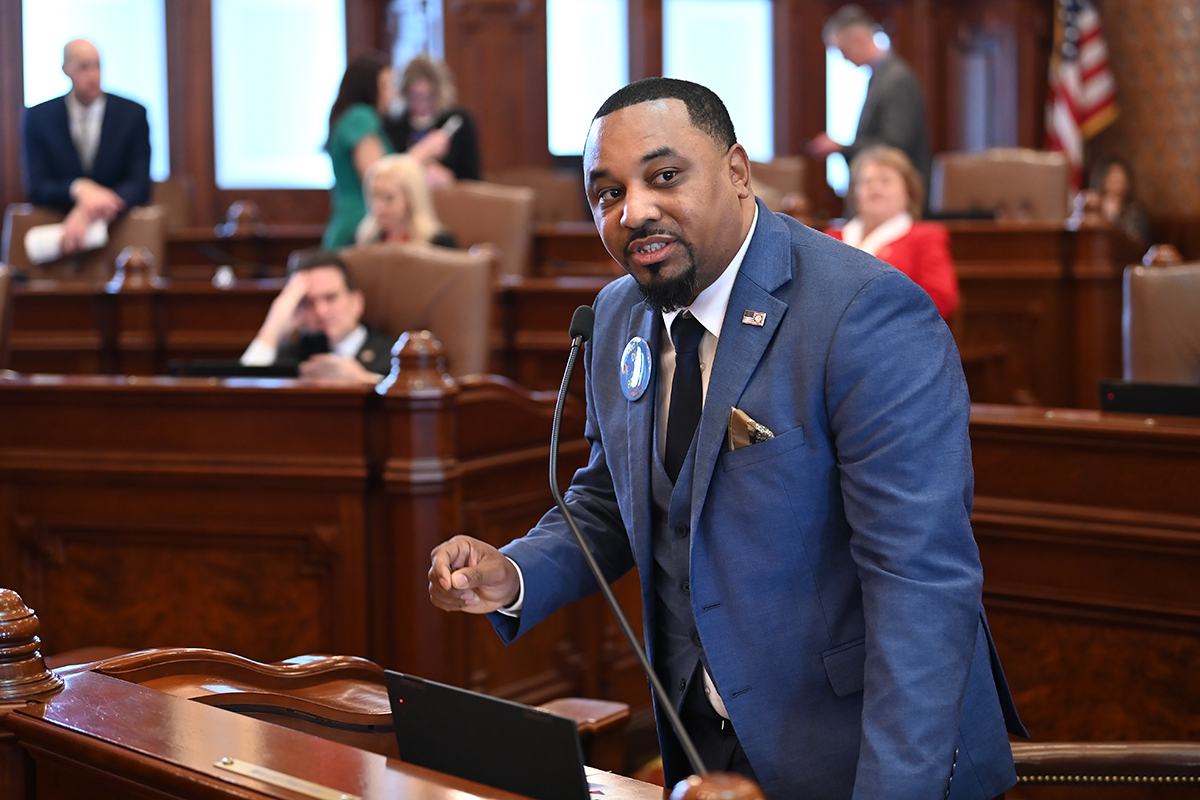
SPRINGFIELD - State Senator Willie Preston spearheaded a new law to expand requirements for school districts to notify families of students with disabilities of advocates experienced in Individualized Education Programs.
“This legislation ensures that families know what services are available to them as they help their child navigate the educational space,” said Preston (D-Chicago). “All students deserve a fair and just education experience.”
House Bill 1366 will ensure that all parental notification for IEP meetings inform parents that they may invite other individuals to assist who have knowledge or special expertise regarding the child. Some examples of the individuals may include stepparents, relatives, doctors, therapists or nurses.
- Details
- Category: Senator Willie Preston News
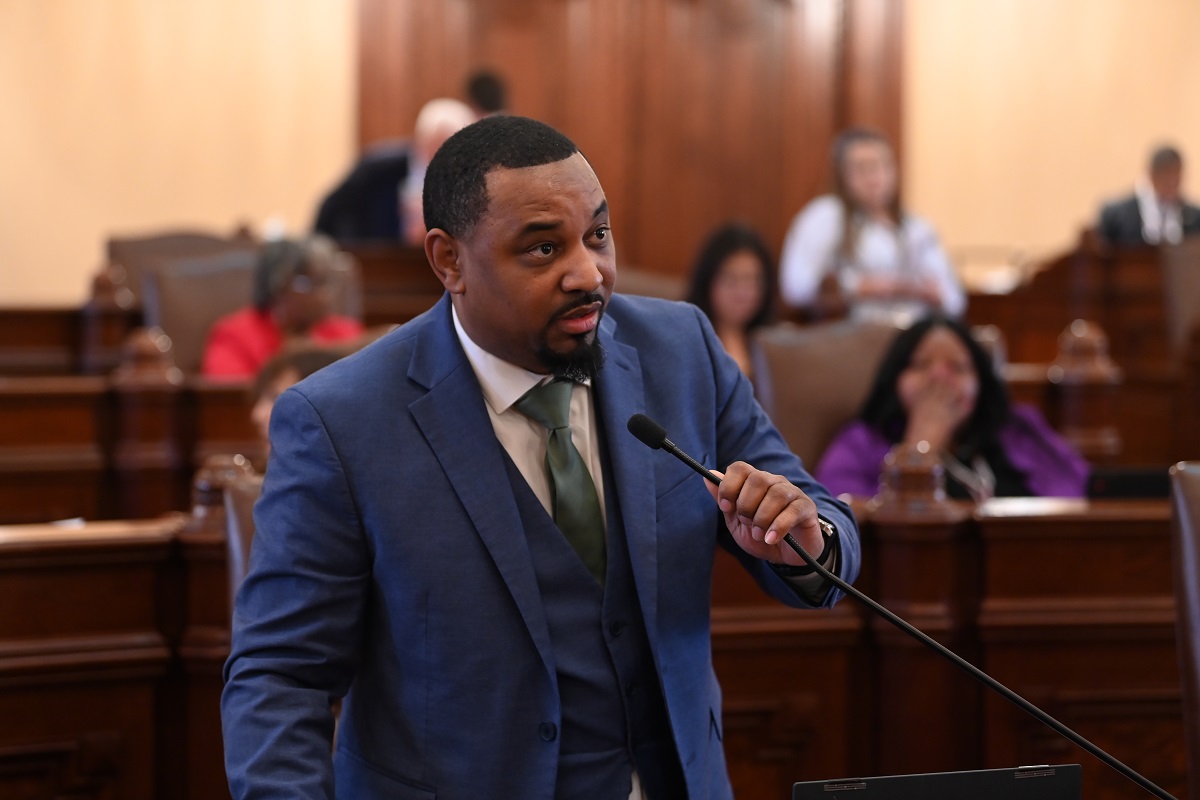
SPRINGFIELD - Implicit bias training surrounding maternal health for health care workers will now be required in Illinois, thanks to a new law led by State Senator Willie Preston.
“Black women are three times more likely to die from pregnancy-related cause of deaths than white women in Illinois,” said Preston (D-Chicago). “Protecting maternal health care is about more than health care, rather it is about human rights and we must protect the rights of all mothers.”
House Bill 2517 will expand implicit bias training for health care workers in Illinois to include training in potential maternal health risk factors associated with marginalized communities with increased mortality rate.
Read more: Preston law to expand implicit bias training for health care workers in Illinois
- Details
- Category: Senator Willie Preston News
 Legislation championed by State Senator Willie Preston becomes reality with ribbon cutting ceremony
Legislation championed by State Senator Willie Preston becomes reality with ribbon cutting ceremony
CHICAGO – In a historic and heartfelt tribute, the Illinois Secretary of State’s flagship building has been officially named in honor of Jesse White, the longest-serving and most respected Secretary of State in Illinois and American history. The dedication ceremony and ribbon cutting took place today in Chicago, marking the culmination of legislation spearheaded by State Senator Willie Preston.
“It was my honor to carry this legislation through the Senate to ensure the legacy of Secretary Jesse White is forever etched in the fabric of Illinois,” said Preston. “His decades of service, unwavering integrity, and transformative leadership have shaped not only the Secretary of State’s office, but public service in this state and across the nation.”
Read more: Illinois Secretary of State flagship building named in honor of Jesse White
- Details
- Category: Senator Willie Preston News
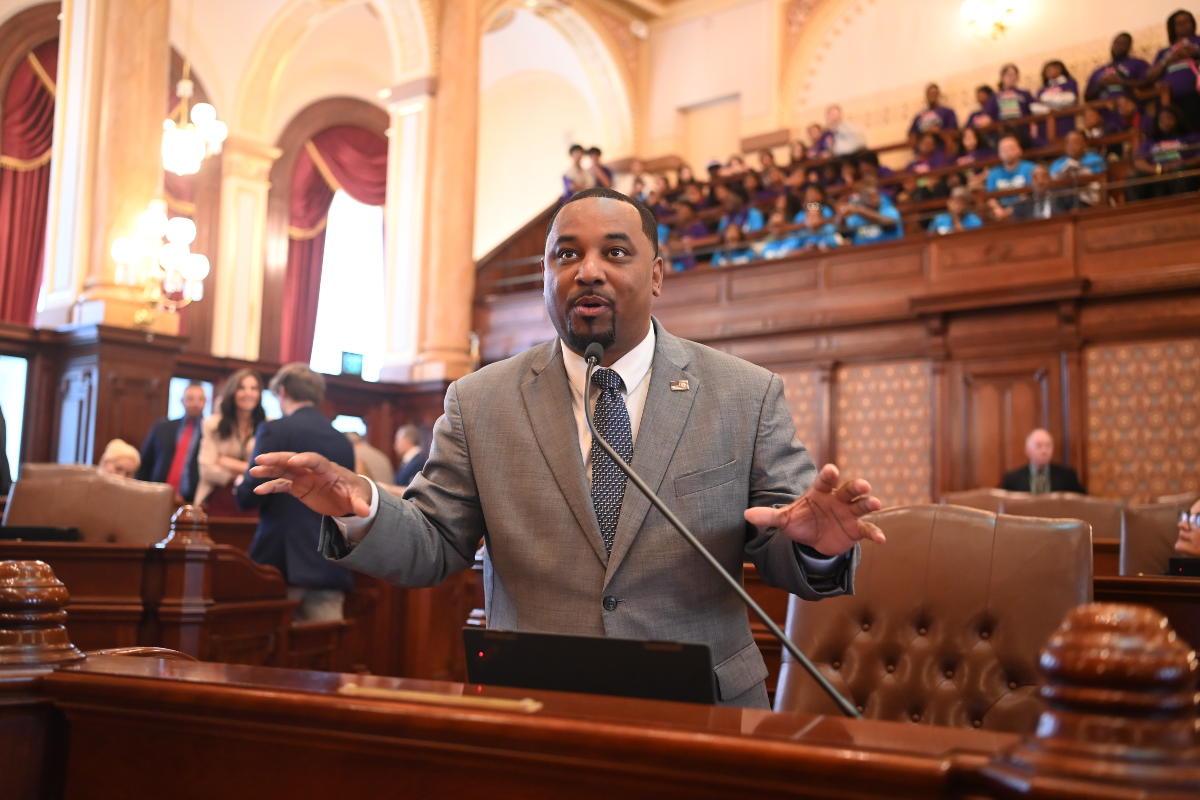 SPRINGFIELD - State Senator Willie Preston passed a measure through the Senate to expand implicit bias training for health care workers in Illinois.
SPRINGFIELD - State Senator Willie Preston passed a measure through the Senate to expand implicit bias training for health care workers in Illinois.
“I am proud to lead the charge in implementing essential implicit bias training in health care surrounding maternal health risks associated with marginalized communities in particular Black communities,” said Preston (D-Chicago). “Black women are three times more likely to die from pregnancy-related cause of deaths than white women. I will always advocate for every woman in Illinois to receive adequate, respectful, and dignified health care regardless of their background.”
Read more: Preston measure to expand implicit bias training for health care workers passes Senate
- Details
- Category: Senator Willie Preston News
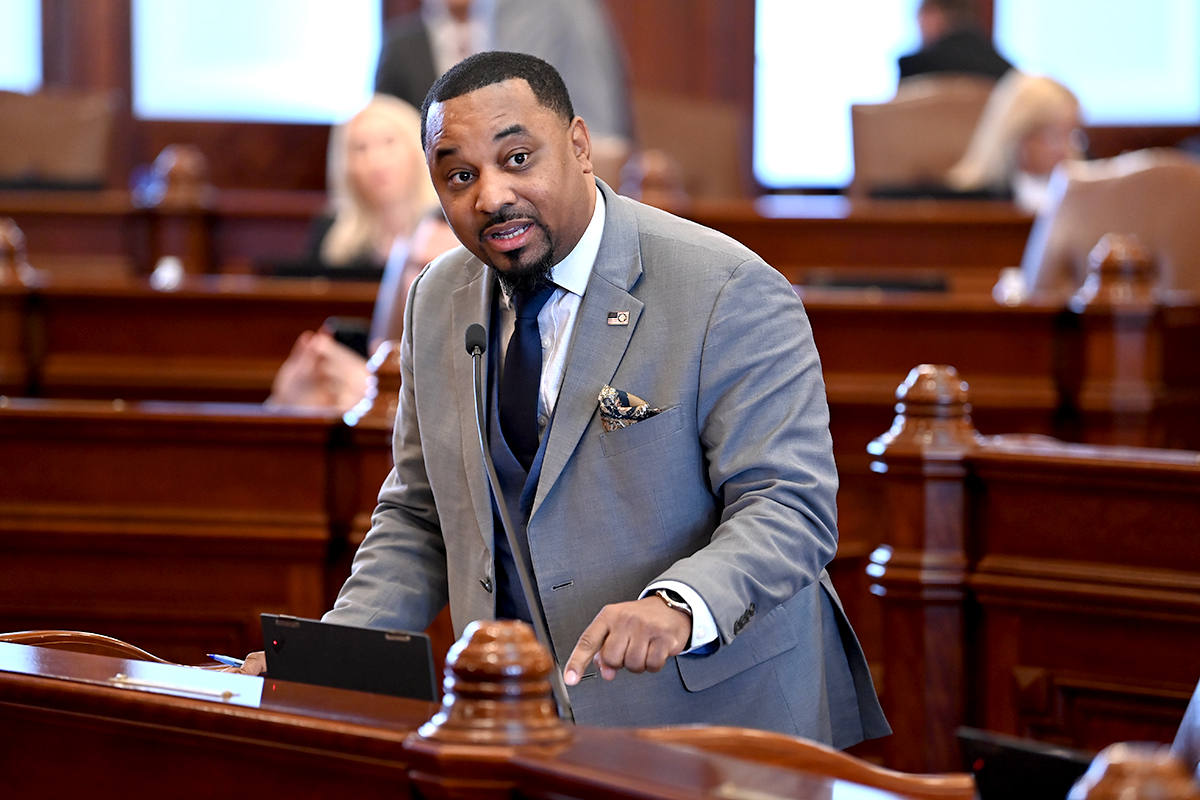
SPRINGFIELD – State Senator Willie Preston is leading legislation to provide formerly incarcerated individuals resources to acclimate the person to life outside of a correctional facility.
“By providing resources to formerly incarcerated individuals, we are giving them a chance to succeed, empower and uplift their communities,” said Preston (D-Chicago). “We must treat all Illinoisans with respect and give them a chance to succeed regardless of their background.”
Read more: Preston bill to provide formerly incarcerated individuals with a pathway to society
- Details
- Category: Senator Willie Preston News
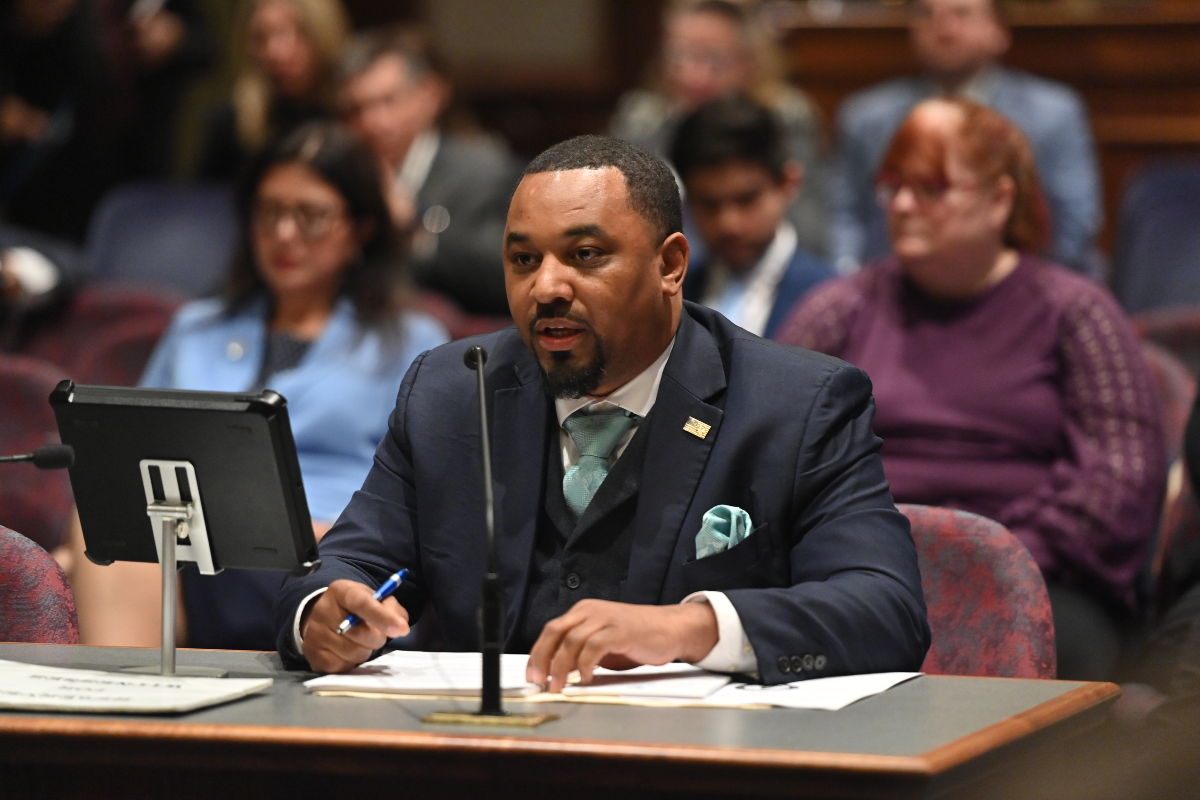 SPRINGFIELD - State Senator Willie Preston passed a measure through the Senate Licensed Activities Committee to expand implicit bias training for health care workers in Illinois.
SPRINGFIELD - State Senator Willie Preston passed a measure through the Senate Licensed Activities Committee to expand implicit bias training for health care workers in Illinois.
“Having implicit bias training in our health care system is essential as Black women are three times more likely to die from pregnancy-related cause of deaths than white women,” said Preston (D-Chicago). “We must protect the maternal health of every women in our state.”
Read more: Preston leads expansion of implicit bias training for health care workers
- Details
- Category: Senator Willie Preston News
 CHICAGO – Following the recent announcement of the U.S. Department of Health and Human Services and U.S. Food and Drug Administration to phase out eight artificial dyes, State Senator Willie Preston announced his support for the decision and highlighted his efforts to remove harmful food additives that have been linked to dangerous health issues.
CHICAGO – Following the recent announcement of the U.S. Department of Health and Human Services and U.S. Food and Drug Administration to phase out eight artificial dyes, State Senator Willie Preston announced his support for the decision and highlighted his efforts to remove harmful food additives that have been linked to dangerous health issues.
“Today’s announcement by the HHS and FDA to phase out artificial dyes in America is long overdue. I applaud them for taking this bold yet pragmatic step,” said Preston (D-Chicago). “The health of Americans — especially our children — must rise above corporate profits and political gamesmanship.”
The eight petroleum-based artificial colors being phased out include Blue No. 1, Blue No. 2, Green No. 3, Orange B, Citrus Red No. 2, Red No. 3, Red No. 40, Yellow No. 5, and Yellow No. 6. These are found in products such as cereal, ice cream, snacks, yogurts, and more.
Read more: Preston commends HHS, FDA phase out of eight artificial dyes from the U.S. food supply
More Articles …
Page 1 of 6













 © 2026 Illinois Senate Democratic Caucus
© 2026 Illinois Senate Democratic Caucus